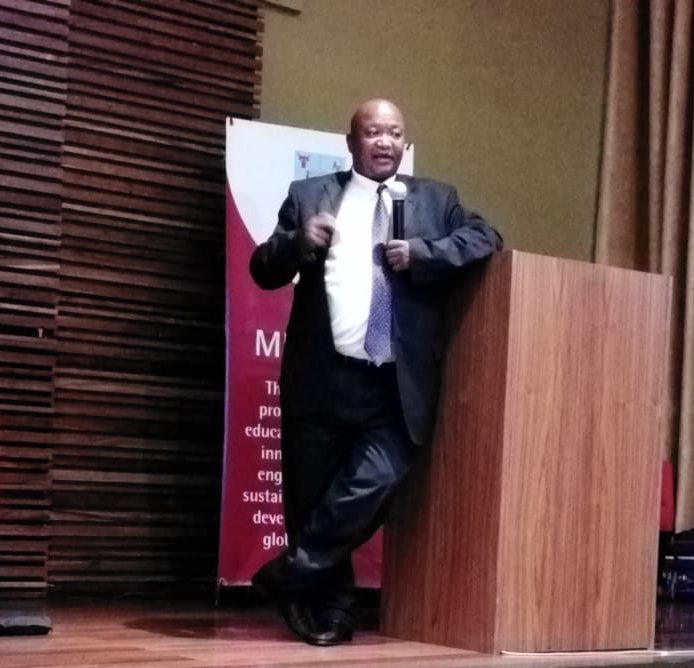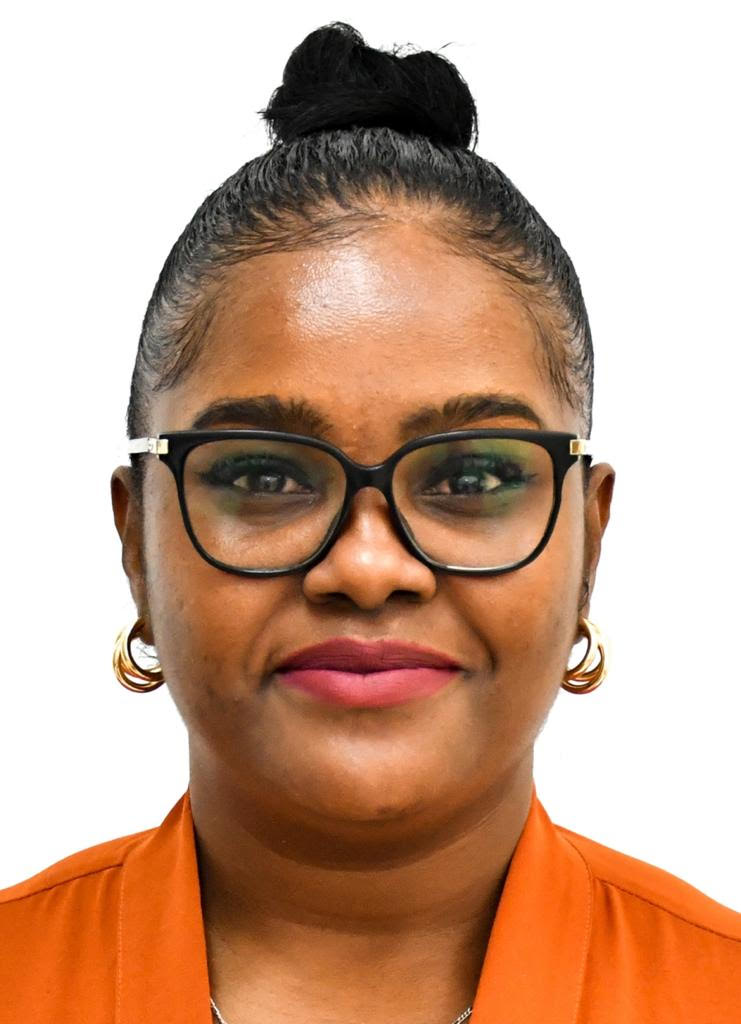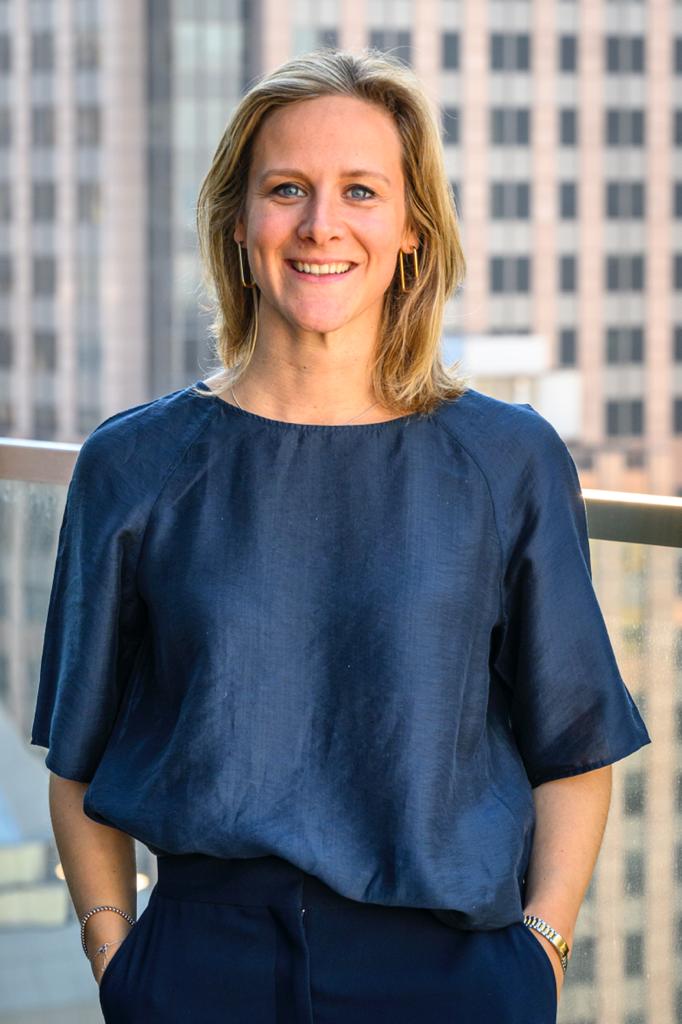
Dr. Onkemetse Tshosa. A senior Law Lecturer at the University of Botswana and a former Judge of the SADC Tribunal, emphasising a point
Cynthia Thanda (The Pan Afrikanist)
Like any other government institution, the judiciary is important and dynamic and requires a very effective response to the needs of the ever-changing world.
Speaking at the colloquium to deliberate the University of Botswana’s contribution to the constitutional review exercise on the 7th of April, Senior Lecturer at the Department of Law at the University, Dr. Onkemetse Tshosa stated that, based on our colonial history, our judiciary is divided into two parts – the common law courts and the traditional courts, known as the customary courts.

Dr. Tshosa said that some people still question the relevance of this dichotomy and wonder about the certainty of the laws of the customary courts given that the tribal groupings in the country are diverse and all have their own customary practices. “So how does one tell that a particular practice is universally applied in the country or is it just specific to a particular tribe?”
However, Dr. Onkemetse mentioned that the argument is defeated when people say that traditional institutions have played a role and that as soon as you merge the two (customary and common law courts), it is axiomatic that the chiefs will lose their position.
On judicial independence, Dr. Tshosa said there have been complaints that the judiciary in Botswana lacks independence, particularly with regards to the appointment of the Chief Justice and the Judge President of the Court of Appeal who are appointed by the President acting alone without anyone’s advice.
Section 95(1) and Section 99(1) of the Constitution state that there shall be a High Court and a Court of Appeal for Botswana which shall have such jurisdiction and powers as may be conferred on it by this Constitution or any other. People have argued persuasively that it may compromise the independence of the Presidential.
“When you talk about impartiality and independence of any institution you have to look at the manner in which it is created and the manner of appointing that institution”, he posited, adding, “Are they going to be accountable to the people who appoint them or are they going to be accountable to the whole country”?
He said this was one area that should seriously be taken considered when the Constitution is crafted.
Dr Tshosa explained that in other countries the appointment of members of the judiciary goes through a democratic, participatory process and cited the USA as a good example. He asked if we want a situation in which the appointment is brought before a parliament committee that can have a Senate and the Lower House?
He said such an approach entrenches and enhances the process of law-making so that it goes through a rigorous process until it becomes law and is assented to by the president or whoever is designated to do so!
Dr. Tshosa argued that under the current system, the Chief Justice is a judge in the High Court and presides over cases in the High Court. When it comes to having the last say in judicial decisions, it is not the Chief Justice, it is somebody else at the Court of Appeal in the name of the Judge President and Dr. Onkemetse argued that the Chief Justice’s position must be escalated so that he becomes a judge of the Court of Appeal only and should preside at the Court of Appeal.
Law guru and former Vice-Chancellor of the University of Botswana, Professor Bojosi Otlhogile suggested that there needs to be a distinction between a division and sitting of a High Court. If the sittings were to be made into divisions and headed by the Judge President in different divisions and the Chief Justice could be appointed.
Gaone, a third-year Law Student mentioned the need for judicial independence. She said that the heads of the institutions are appointed by the president who is under no obligation to consult anyone and wondered whether this cannot be an opportunity to advance political objectives instead of making credible appointments?
The other question was whether the judicial service commission (JSC) is able to stand on its own or if there is some executive influence from the president since he is already appointing the majority of the members in it.
The main idea, Gaone pointed out. is to limit the executive involvement in the judiciary through making appointments of heads of institutions of judicial institutions by the JSC.
Gaone argued that there has to be a way for other judicial offices to nominate and vote for their colleagues to be appointed to the Judicial Service Commission in order to ensure that there is less presidential involvement. The president can make endorsements for the purpose of a balance of power.









